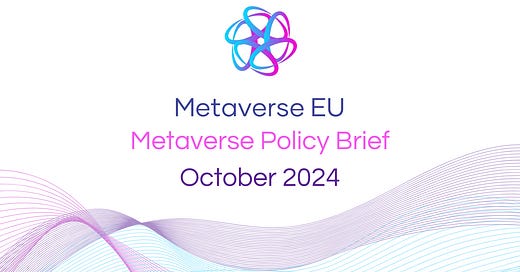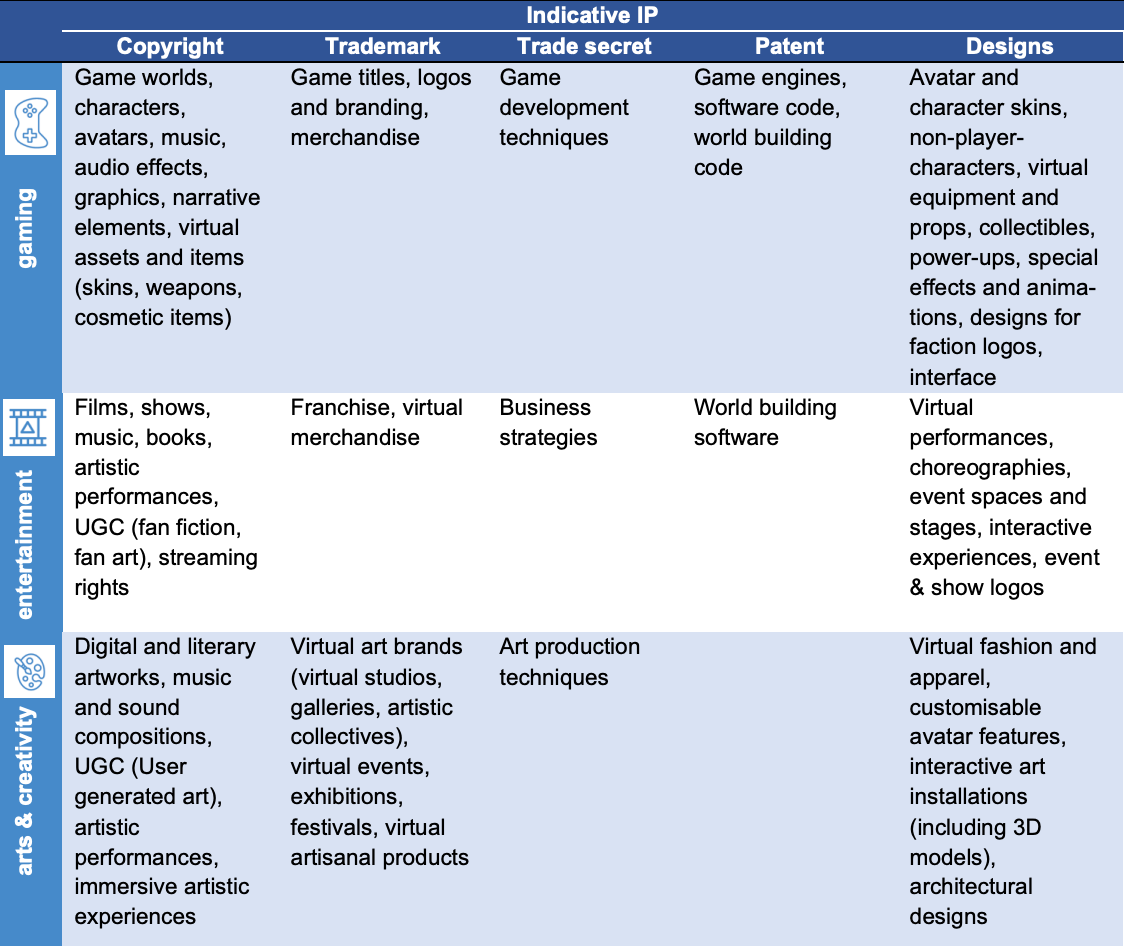Welcome back to our Metaverse Policy Brief! This brief arrives late due to the busy September swell and a flood of metaverse policy news 🥵.
This edition focuses on news from the EU institutions and sadly skips lots of interesting business items (next time, Siemens and Lufthansa).
🇪🇺 EU Policy
🏢 European Commission
Response. The European Commission responded to our joint letter calling for a new strategy on virtual worlds. A Commission spokesperson told Politico that when Commission President von der Leyen publicly asked incoming Tech Commissioner Virkkunen to intensify efforts on the “next wave of frontier technologies”—a list that boldly includes novelties like the “Internet of Things”—this would, though not specified, include virtual worlds. Phew!
Fair play. The long-awaited Digital Fairness Check—a study to support the upcoming Digital Fairness Act, a review of EU consumer law—cited virtual worlds as an emerging risk. It states that consumers may be more prone to “undue influence” when “immersed in gameplay or virtual world environments.”
Trust issues. DG COMP, the Commission’s antitrust department, published a brief on Competition in Generative AI and Virtual Worlds. It cited risks of harmful vertical integration, data sharing, and “lock-in.”
Good luck. Before facing hearings next week, Ireland’s Commissioner-designate Michael McGrath provided written answers to Parliament’s questions. He teased work on virtual worlds: “I look forward to discussing with you how to ensure that virtual worlds can develop in a way that reflects EU values, principles and fundamental rights.”
Standards practice. The VR/AR Industrial Coalition met again on 27 September, this time to discuss standardisation in virtual worlds.
Elsewhere, the Virtual Dimension Center published the world’s “largest, publicly-accessible, and searchable database” for XR standards.
A hard look in the mirror. The AI Office—yes, that AI Office—presented its project on Local Digital Twins. The report from that meeting is here.
Due discourse. The sub-group on Governance of Virtual Worlds, part of the High Level Group on Internet Governance, met to discuss the executive’s upcoming programme and to hear from ecosystem players. Attendees and minutes from that meeting are here.
The Web 4 Hub supports the Commission’s preparations and held governance and technical workshops last month.
Yes more games. The EU opened a €7 million funding call “to increase the capacity of European video game producers, XR studios and audiovisual production companies to develop video games and interactive immersive experiences with the potential to reach global audiences.”
Good thinking. The European Union’s Intellectual Property Office (EUIPO) published a deep dive into the impact of the metaverse on IP infringement. It laid out several issues and scenarios.
🗳️ European Parliament
In motion. Parliament’s digital titan MEP Axel Voss quietly announced on LinkedIn “MY GOALS AND TEAM FOR THE NEW MANDATE”. He noted his office’s work on virtual worlds—“a topic which we will continue to push also in the next years.”
🏛️ Member States
Sandboxes. The Members States expert group on virtual worlds met for the 3rd time on 22nd October to discuss political considerations, problematic aspects, and next steps for regulatory sandboxes. Watch this space.
The M word is back. The Working Party on Telecommunications and Information Society met on 16 October to discuss “Metaverse, Virtual Worlds, and Web 4.0 Initiatives” with the Commission.
Bloc party. The first digital event of the Polish Presidency to the EU, starting Jan 2025, will be a High Level Conference on Governance for Web 4.0 and Virtual Worlds.



